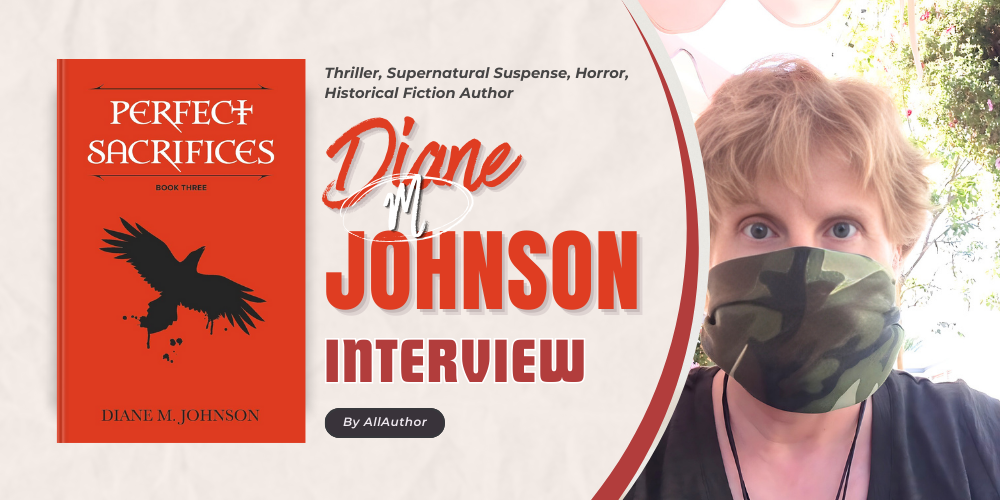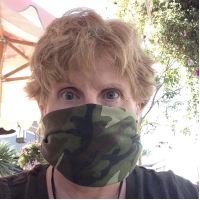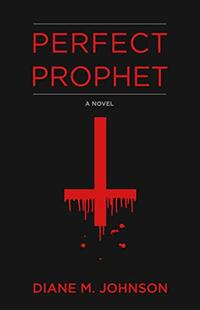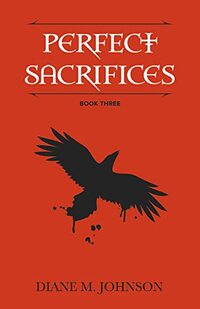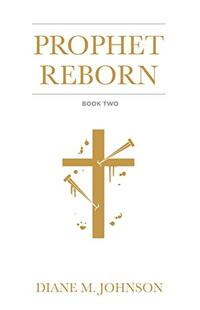What inspired you to transition from screenwriting to novel writing?
I guess the simplest answer is that screenwriting is a highly competitive business. I love to craft stories. But pitching is an endless hustle in an industry where you have to be involved 24/7 if you want a chance of getting noticed. I studied film, so starting with screenplays was the logical choice. But also, life happens. When my agent retired, I was on the way to starting a family, so my priorities changed. Adapting sideways was an option to get my stories out there on my own terms without the middleman of a new agent or producer.
Can you tell us about the journey of adapting your script into your first novel, "The Schoharie"?
What’s great about tackling your story in screenplay format is that it's more like a blueprint than a novel is. You focus on the action and the dialogue that moves the story from (ideally) one structured plot point to the next. It's comparatively fast and dirty, and after that, you rely on a collaborative effort with skilled actors, directors and crew (and post production artists) to bring that skeleton to life. In short, the script is an embellished outline of a novel. It's a streamlined first draft, and I’m really comfortable with the process because the story—from beginning to end—is already in place.
How has your background in film theory influenced your approach to storytelling in both scripts and novels?
Film theory, in part, addresses how film as a visual medium enhances the storytelling process. It's literally all about the show, don’t tell rule of storytelling. Coming from that kind of background hopefully helps me keep that in mind when putting the story on the page.
What draws you to the particular genres or themes you explore in your writing?
Horror is a genre that is literally designed for readers and viewers to face their fears. When I was a teenager, I came to the realization that some guys would take girls to horror films for the sake of scaring them into the safety of those big strong manly arms (seriously, I wasn’t buying it). I didn’t want to be that girl. I guess I aspired to be a final girl if ever in horrific circumstances. But also, I grew up in a rural county with its own haunted history that could easily be transplanted into any Stephen King novel. As for themes, many of my characters struggle with faith, whether it's their faith in a god or faith in themselves and their own abilities to face immense conflict or unjust circumstances. My characters have flaws, and I make them suffer—whether it involves regrets over their past or self doubt when challenged, and who can’t relate to that?
As a script reader, what are some common elements you look for in a compelling screenplay?
Imperfect characters. And by that I mean that I don’t have to like an MC as long as I understand the motives of the MC. Also, something has to happen in those first 10 pages to make me want to read more. The character can’t just be going on a journey. But if the character is going on a journey, they need to hit an obstacle fast that forces them to make a decision that they don’t want to make. The journey has to be about hitting obstacles, then making decisions to overcome them (and ideally, the wrong decisions lead to bigger obstacles…).
How do you approach character development in your writing process?
My characters always struggle with an inner conflict. I try to challenge their beliefs and put them in situations where they have to make difficult choices that go against those beliefs. The sheriff, in The Schoharie, has a history with Aaron Bonner's father that he'd just as soon leave buried. But he recognizes that Aaron is heading down a dangerous path that mimics the path of his father, one that the sheriff was involved in. The sheriff is struggling with trust issues and with his own guilt over past mistakes. In the Perfect Prophet series, Alec rebels against religion because of a traumatic past with a strictly religious father. His antagonist, Lucas, rebels against God for similar reasons. While the entire series is steeped in horror, the characters develop through their struggles with their beliefs, their faith, their self perceptions of identity, and in defining what constitutes redemption.
Are there any authors or screenwriters who have particularly influenced your work?
I've been blown away by some great horror authors lately. Stephen Graham Jones, for example, can drag you through the mud, the blood, and the gore along with his characters while never dismissing the importance of humanity. And from the XFiles to Breaking Bad to Better Call Saul, Vince Gilligan tends to hit storytelling out of the park. But let’s not forget that TV writing is often collaboration writing so I’m willing to give a nod to the entire Vince Gilligan writers room team. I don’t know if I can say these two influenced my work, but I can say that I’m a fan. I grew up reading a lot of Stephen King, and coincidentally, Diane Johnson (Le Divorce, Le Mariage) wrote the script for The Shining, so maybe I lean heavily into those two things as my calling.
Can you share any insights or challenges you faced while navigating the transition from aspiring writer to published author?
I think that most, if not all, writers struggle with the perception of being good enough. We are compelled to write, it’s in our blood. Very few fiction writers head into the profession because they think that it’s easy money. They do it out of a driving need. And yes, they hope to make a living from it, and some actually do. But deep down, most of us know that it’s not a guarantee. So, it can be daunting to put something out there that you fretted over for months or even years, knowing that it might not find an audience. Or, that some readers will hate it. But then you find a favorite book by a favorite author, and you check on their reviews, and that book that you loved was someone else’s DNF, and you realize that you’re not giving people the chance to love your book, or to hate it, if you're not putting it out there. Since I learned that you have to challenge your characters and force them into making decisions where they will more than likely fail, I decided that I should follow the lead of those characters. We’re not going to fail if we don’t try. But also, we’re not going to succeed. Yoda from Star Wars says Do or do not, there is no try. But what he didn’t say was that do not is more of a failure than actually failing at what we do. Also, my spouse has been a science teacher. He tells kids that there is no failure in science. But there is success in learning from mistakes.
What do you hope readers will take away from your novel, “Perfect Sacrifices”?
Perfect Sacrifices is book three of the Perfect Prophet trilogy, and it focuses on Lucas, who is the antagonist in books one and two. He's a deeply complicated character who seeks redemption and forgiveness for actions that are so unconscionable that even he believes that he doesn’t deserve to be saved (for lack of a better term). But he tries. He sets out to earn forgiveness from the people who have every right to hate him, and along the way, he finds the potential hero within himself.
How do you balance the visual aspects of storytelling in screenwriting with the more descriptive nature of novel writing?
I’m not sure that I do. That seems weird to say out loud, but there are plenty of novel writers who are famous for their limited prose, where less is more—Elmore Leonard as an example. He apparently mentioned it among his personal writing rules.
Are there any experiences or memories from your upbringing in Central New York that have found their way into your writing?
Sure. The Schoharie in particular comes from an actual event that took place in the area where I grew up. It was the 1987 Schoharie bridge collapse. The fictional setting was inspired by a real event, but it also reflects the kinds of people and places I knew while growing up in the area.
What advice would you give to aspiring writers who are just starting their journey?
The blank page can be daunting. Feedback and criticism can be humbling. Just remember what Chuck Shurley, the character from the TV show Supernatural had to say about being an author. "Writing is hard." (and sometimes the characters themselves will even get annoyed with you…). Just remember that going in, and then go write it anyway.
How do you stay motivated and disciplined in your writing practice?
Daily engagement. Whether it’s actual writing, or editing or researching, or even a silly writing inspiration game based on a challenge word from a social media thread, I find it important to engage in the process. It doesn’t have to be a page count, or a word count, but it can be those things. Just engage in the process regularly.
Can you share any upcoming projects or ideas you're currently working on?
I’m working on an alt history drama project that’s vastly different from anything else I've written. It’s a little bit daunting because of the historical context, but the historical elements driving it are insane to me. The fiction grows from things that actually happened. Dark and horrible things. I originally wrote it as a TV pilot that has placed well in a number of script competitions, so I’m excited to see how this goes.
What do you think of AllAuthor? Has this website been helpful to you?
First and foremost, yes I feel the website has been helpful. Marketing in general is expensive and time consuming, and I feel like AllAuthor provides reasonable exposure at a reasonable price. That having been said, I’m familiar enough with how the industry works to recognize scams. I’ve seen an exponential uptick in "marketers" trying to sell me on their services since joining. Marketers and agents looking for me?—it’s not how this business works. I guess what I’m saying is that if you’re an author looking to take advantage of AllAuthor's services, be aware of the potential scammers who might also find you there. But also, the site itself has some pretty cool promotional tools for the self published author on a budget.








